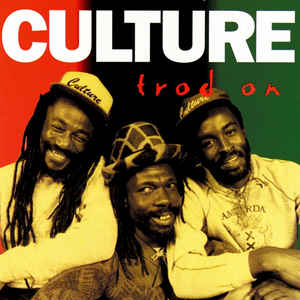The reggae
group Culture was very influential in reggae music. Their Trod On album was
originally released in 1979 with songs like "Black Rose."
Reggae music has
had several extremely talented artists who really took the genre to an international
level. We always hear about Bob Marley, Jimmy Cliff,
Peter Tosh and Bunny Wailer.
The reggae group, Culture,
was also very popular and influential with their style of performing. They
released songs like "Blood in a Babylon," "Weeping Eyes"
and "No Sin" on their fourth album, Trod On. Culture's members
originally were Joseph Hill, now deceased, Kenneth Paley and Albert Walker.
Reggae Group
Culture Gave Us Good Reggae Music*
The reggae group Culture released several
albums including Two Sevens Clash, Cumbolo, One Stone, International Herb
Culture and Harder Than The Rest." Stoute also shared in his article that
Culture was inducted "into the Jamaican Reggae Walk of Fame" and was
given a "2005 Independence Award presented by the Prime Minister of Jamaica."
Reggae's Culture
Worked with Jamaica's First Female Music Producer
Culture released
Trod On in 1979. According to the notes to the Trod On album, "this album
is Culture's fourth album for producer Sonia Pottinger."
The Reggae Album Trod
On
Trod On has twelve
songs including two under the title "Grounation" featuring Count Ossie
and the Mystic Revelation of Rastari. While Trod On was originally released in
1979, it was re-released in 1993 on compact disc. Joseph Hill wrote all of the
songs and the music was engineered by Errol Brown.
- Title Track "Trod On": "Trod On" has a catchy instrumental and inspiring words. Lyrics include "this is the time when I and I should be free" and "majority of them don't want to see dread survive / but no matter what they do, dread must stay alive." Culture encourages people of all races to "trod on" and keep moving forward to victory and to prosperity. "Trod On" also makes several biblical references to Samson, Jacob, Joseph (in the pit), Daniel and David.
- "Blood In A Babylon": "If Babylon kill one more Rastaman / the sun will stop from shining / the grass will stop from growing" start the first verse of this piercing song. The chorus repeats the words "Blood, blood, blood in a Babylon" and "Fire, Fire, Fire in a Babylon" is added as a second chorus. The artist is expressing his pain for the youth and elders in the community who were being persecuted at that time.
- "Fussing And Fighting (Take Two)": Joseph Hill was basically making an appeal to his people to find unity in this song. The hook contains the simple, yet powerful words "Stop this fussing and fighting, brother." The 'Take Two' is only to reiterate that it does take two persons to make an argument. "It's a shame to see the people fighting in the streets / drawing guns at each other" are lyrics from the first verse.
- "No Sin" with Count Ossie & Mystic Revelation of Rasta: "No Sin" is one of the songs listed under the title "Grounation," which the album booklet describes as a "gathering of Rastafarians who come together to 'reason,' mingle ideas through discussion, chanting and beating drums." "No Sin" has rhythmic drum beats which remind the listener of Bob Marley's "Rastaman Chant" and is the longest track on the album with over seven minutes of chants. One of the popular bible verses, "Let the words from I mouth and the meditation of I heart might able be acceptable in thy sight" from Psalm 19:14 is sung. "No sin, no sin at all... cannot enter Zion" is repeated throughout "No Sin."
- "Ticklish Ghetto": "Ticklish Ghetto" has a classic ska rhythm. "Sometimes it's hard, hard, hard, so very so hard, my friend, to get a job / when you work and get pay and walk go a street, I say / them there a want to shoot you down" describes the singer's thoughts about the perils in the "Ticklish Ghetto." While people may work hard, there is always someone who wants to take what they earn. In the chorus, Culture admonishes "Work hard, natty, work hard, yea, till Jah Jah come."







